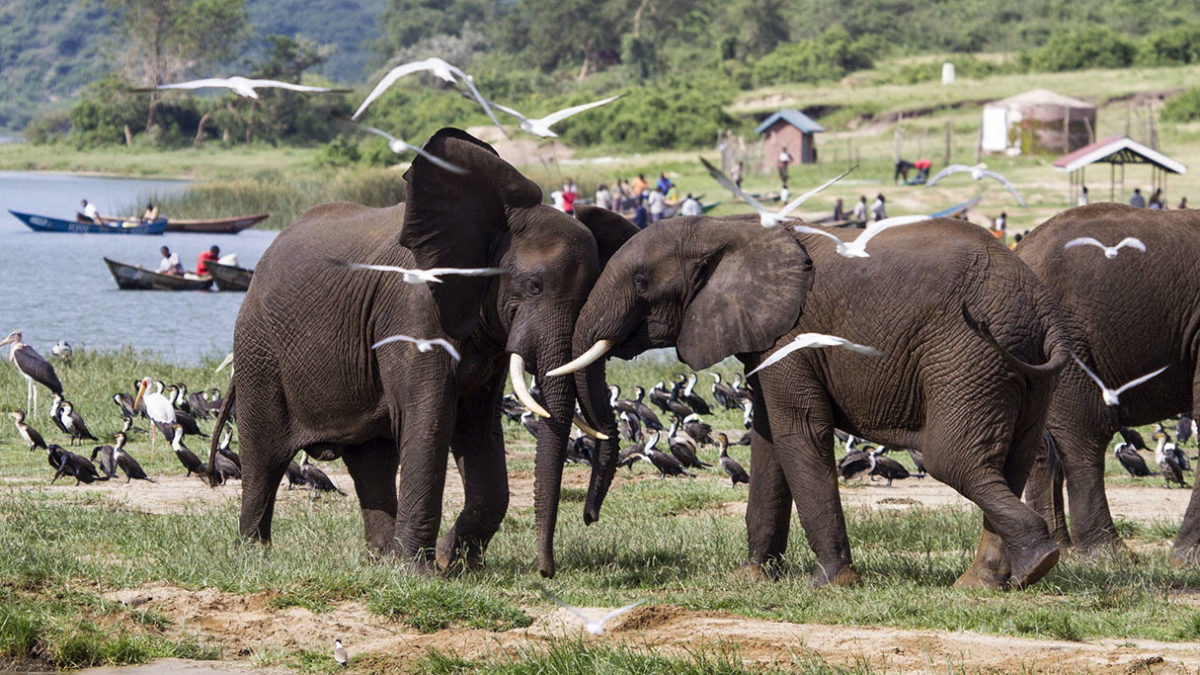Protecting Africa’s charismatic megafauna often come first to mind when Westerners think about conservation in Africa. But there’s a lot more to conservation efforts across the continent beyond elephants and lions. Conservationists often need to navigate the complexities around balancing the needs of local communities with the needs of wildlife, adapt to rapid changes in land use and management, and prepare for the impacts of climate change and expanding infrastructure.
Ugandan sustainable development practitioner Alice Ruhweza understands these issues well, having worked in a wide range of roles from the National Environment Management Authority in Uganda to the United Nations Development Programme (UNDP) to senior leadership at Conservation International. In those capacities, Ruhweza helped put hundreds of millions of dollars to work in more than 40 African nations, led the data-driven Vital Signs Programme to inform policymaking, and worked with governments and businesses to move toward more sustainable development pathways. Today, Ruhweza is the regional director for Africa for WWF, where she leads the conservation giant’s work across the continent.
“The West largely thinks about conservation in Africa as all about large mammals,” Ruhweza told Mongabay. “It is true that Africa has some of the most awe-inspiring assemblages of large terrestrial mammals anywhere on Earth. But conservation in Africa is so much more than that. Conservation in Africa is also about forests, and rivers, wetlands, mountains and deserts. It’s about the world’s second most important collection of tropical reefs and astonishing freshwater biodiversity.”

“And most importantly, conservation in Africa is about people. As the home of humankind, Africa and its ecosystems have evolved together with people. More than just being critical components of ecosystems, over 50% of people in Africa depend directly on nature for their livelihoods. When we talk about conservation in Africa we are really talking about people and nature. We are talking about complex and dynamic ecosystems and rich biodiversity living side by side with communities.”
Ruhweza says that growing recognition of the relationship between people and nature is driving “a shift to a more people-centered and rights-based conservation.”
“The relationship between people and nature is not new. People have lived with nature from time immemorial,” Ruhweza said. “But it is only relatively recently that the conservation community has begun to recognize this not only as a fact, but as both an opportunity and a responsibility.”

Ruhweza says this trend is incorporated in WWF’s new strategy for its work in Africa. Specifically, WWF is putting emphasis on expanding the constituency for conservation by reframing the conservation narrative to increase its relevance to people in their day-to-day lives.
“An increasingly important, and often overlooked, component of conservation success is the broader engagement of society at large,” she said. “Nature is everyone’s business, and to ensure that we capture the power of Africa’s voices we must bring people together across sectors, cultures, and economics to address the critical challenges of inequality, gender, power dynamics, and corruption. Only once we recognize that we are all in this together, and that conservation is not about ‘them’ but rather about ‘us,’ will we be able to fully transform the conservation narrative from ‘exclusion’ to ‘inclusion’ and from ‘conflict’ to ‘harmony.’”
Ruhweza spoke about these trends in conservation, where the sector needs to do better, and more during a recent interview with Mongabay.

